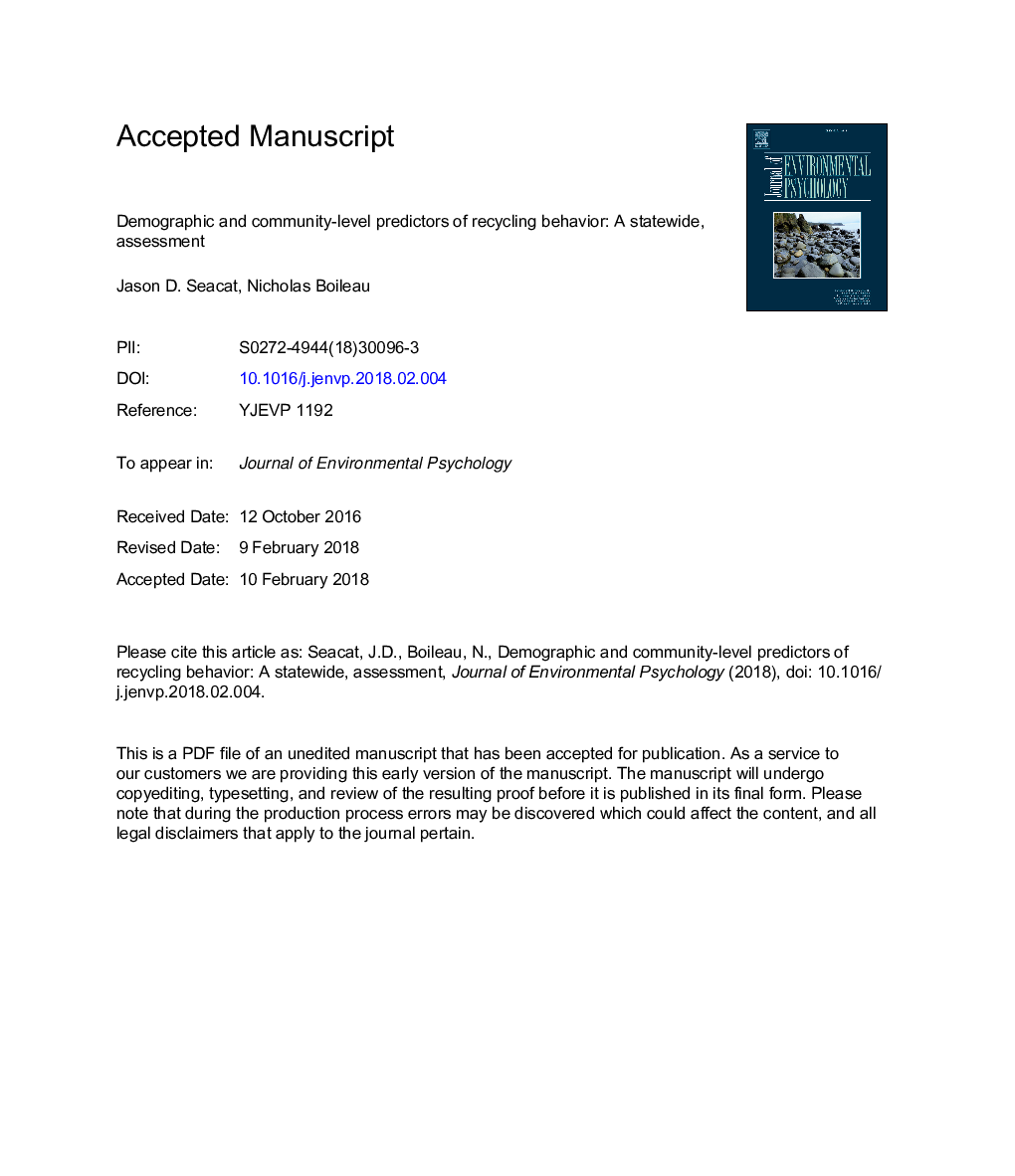| Article ID | Journal | Published Year | Pages | File Type |
|---|---|---|---|---|
| 7245185 | Journal of Environmental Psychology | 2018 | 33 Pages |
Abstract
Municipal solid waste (MSW) generation significantly outpaces growth in municipal recycling and this trend has substantial environmental, health and economic consequences. Several community and sociodemographic factors have been proposed to affect municipal recycling rates. Using a telephone and Internet-based assessment, we examined community-level recycling policies, practices and resources in 245 Massachusetts municipalities. We sought to determine whether these factors, along with important sociodemographic factors, significantly predicted average municipal recycling rates (diversion rates) over a 5-year period. Multiple regression analysis indicated that Pay-as-you-throw (PAYT) trash programs were the most significant factor positively predicting recycling rates. Conversely, communities having to pay for recycling services resulted in significantly lower average recycling rates. Providing residents with recycling information resulted in higher municipal recycling rates and several important demographic variables significantly predicted recycling rates. Implications of our findings are discussed in conjunction with community-level policies and practices to improve recycling rates.
Related Topics
Social Sciences and Humanities
Psychology
Applied Psychology
Authors
Jason D. Seacat, Nicholas Boileau,
